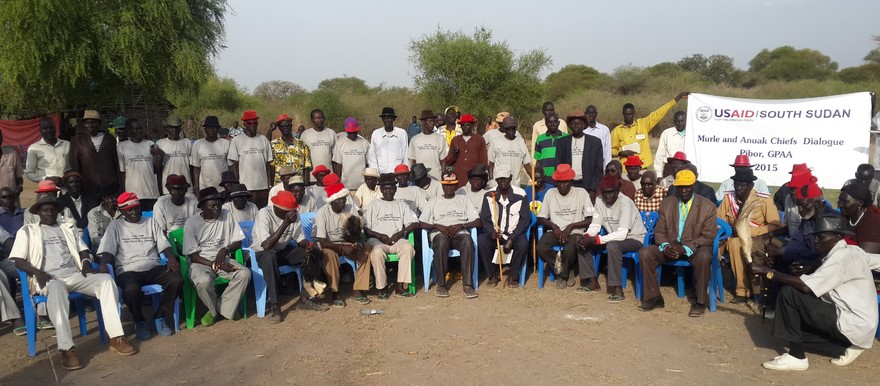A five-day peace conference of Murle and Anuak chiefs in South Sudan’s Greater Pibor Administrative Area (GPAA) has resolved to maintain social peace among citizens in the area.
Sam David, Greater Pibor Area Minister of Information, told Radio Tamazuj on Tuesday that the peace conference last week from 13 to 17 April in Pibor town discussed social peace, early marriage of girls as well as demarcation of boundaries of all counties in the area.
He said that the chiefs also agreed that no one should raid someone else’s properties either within the Pibor area or outside. He further said the meeting also stressed the need for the provision of basic services to citizens, noting the Pibor Administration has not yet received the budget that it was promised by the presidency.
Early marriage
Sam said the conference also condemned early marriage of girls and resolved to promote education for girls within the Greater Pibor Administrative Area.
“Now primary schools have reopened within seven counties of GPAA without budgets from the administrative area but they have managed to reopen schools with helps of some NGOs like UNICEF,” he said, noting that a secondary school built in Pibor is expected to open in May.
The peace conference was supported by United States government funding through USAID/VISTAS, a peace-building program with the stated aim of helping communities “create the space for a strong citizenry to resist instability and violence and see the value of peace.”
USAID is one of several international donor organizations that committed to build infrastructure and services in the Pibor area after the conclusion of a peace agreement early last year between the ‘Cobra Faction’ rebel group of David Yau Yau and the national government.
The peace agreement made Pibor County effectively autonomous from Jonglei State, reestablishing it as a special administrative area “annexed under the Presidency,” with its own budget directly from the national government.
SPLA integration delayed
Meanwhile, a high-level government source earlier this month attributed the delay in paying the Pibor Administration to the difficult financial situation facing the country. He said the agreement would be implemented once the fiscal situation stabilizes.
He also disclosed that the army (SPLA) had already formed a technical committee to conduct physical verification of the Cobra Forces and to determine the number of those who would be integrated into the army and those who would go into police and other institutions or demobilized.
However, other sources indicated that the integration committee’s work has stalled at least in part because of political concerns from the Cobra Faction leadership that the government might try to use its troops or its territory as a launching pad to fight against the SPLA-IO, which could worsen relations with the neighboring Lou Nuer.
Photo: Murle and Anuak chiefs in Pibor (USAID/VISTAS)




